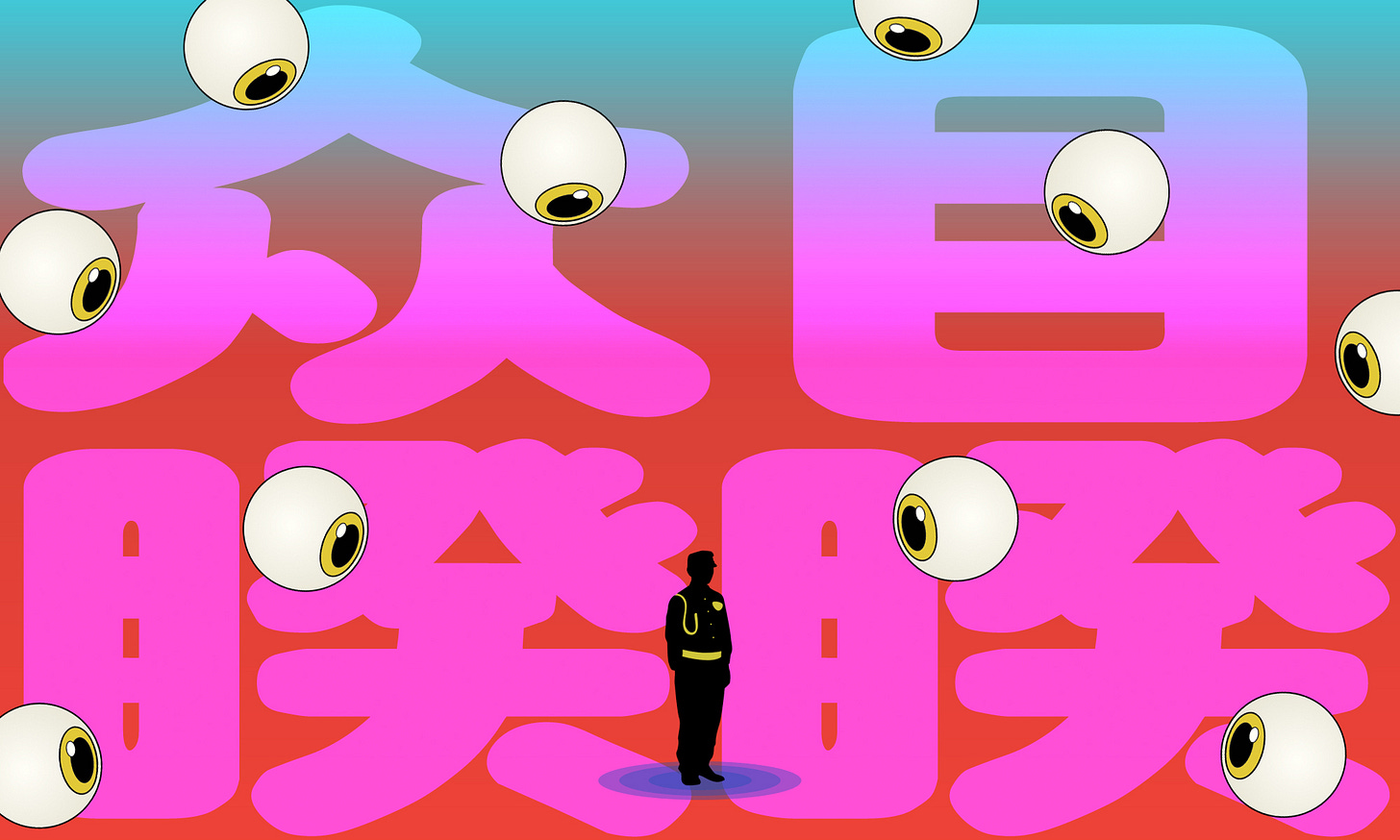"Under the watchful eyes of the public" — phrase of the week
A confrontation between police and a state media journalist is broadcast live on national TV
Our phrase of the week is: "Under the watchful eyes of the public" (众目睽睽 zhòngmù kuíkuí).
Context
Just before 8am on March 13, a huge explosion destroyed a four-story building in Yanjiao (燕郊 yānjiāo), a commuter town in Hebei province about 35km east of Beijing.
The explosion, believed to be caused by a gas leak, killed seven and injured 27.
Reporters from China Central Television (CCTV) and other state media outlets rushed to Yanjiao to cover the incident.
CCTV reporter, Yáng Hǎilíng 杨海灵, was broadcasting live from the scene when men in police uniforms interrupted the broadcast, citing safety concerns. She tried to continue reporting from the chaotic scene until she and her cameraman were forced to move by men shouting: "It's too dangerous!" (太危险了).
That evening, China’s Journalist Association published a statement on its Weibo account, calling for "the right to interview in a professional manner as a fundamental right for journalists" (正当采访是记者的权利 zhèngdàng cǎifǎng shì jìzhě de quánlì), criticizing the authorities for their heavy-handedness.
The Yanjiao government issued an apology, but the damage was done, as one observer noted:
They blatantly obstructed the reporting and suppressed the journalists under the watchful eyes of the public, which has sparked outrage among CCTV reporters and viewers. When faced with negative news, why do so many places react by first preventing journalists from conducting interviews? They resort to interception, surveillance, and intimidation, making it difficult for the public to know the truth and course of events.
众目睽睽之下阻拦并压制记者报道,这引发了央视记者和观众的强烈愤慨。不知道从什么时候开始,很多地方发生负面舆情,第一反应就是防止记者采访报道,拦截、盯梢、恐吓等手段交替运用,让公众很难知道事情真相及进展细节。
Zhòngmù kuíkuí zhīxià zǔlán bìng yāzhì jìzhě bàodào, zhè yǐnfāle yāngshì jìzhě hé guānzhòng de qiángliè fèngkǎi. Bùzhīdào cóng shénme shíhou kāishǐ, hěnduō dìfāng fāshēng fùmiàn yúqíng, dìyīfǎnyìng jiùshì fángzhǐ jìzhě cǎifǎng bàodào, lánjiē, dīngshāo, kǒnghè děng shǒuduàn jiāotì yùnyòng, ràng gōngzhòng hěnnán zhīdao shìqing zhēnxiàng jí jìnzhǎn xìjié.
And with that we have our Sinica Phrase of the Week!
What it means
"Under the watchful eyes of the public" is a four-character idiom. It directly translates as: "all eyes" (众目 zhòngmù), "wide open" (睽睽 kuíkuí).
It was first used by Hán Yù 韩愈, in "Poem and Preface at the Xitang Hall in Yunzhou" (郓州溪堂诗并序 Yùnzhōu xītáng shī bìng xù), written in 822.
Han Yu was an essayist, Confucian scholar, poet, and government official during the Tang dynasty (618-907). He was influential in the development of Neo-Confucianism at that time.
Through Poem and Preface at the Xitang Hall in Yunzhou, Han is calling for fair and just governance to bring peace and prosperity to the nation.
The original passage is:
The court and the people are in extreme poverty;
the new order and the old one are in conflict;
the public is watching;
only fair and just rule can bring stability.
公私扫地赤立,
新旧不相保持,
万目睽睽,
公于此时能安以治之。
Gōngsī sǎo dì chì lì,
xīnjiù bùxiāng bǎochí,
wàn mù kuí kuí,
gōng yú cǐ shí néng ān yǐ zhì zhī.
In the poem, “the eyes of the public” (万目 wànmù) are watching closely and waiting for their rulers to deliver a fair and just society.
The character wàn 万 means "ten-thousand" but in this context it means "many". It means the same as zhòng 众, which refers to the “public” or “many people”.
In modern Chinese the phrase has evolved into the four-character idiom, "under the watchful eyes of the public" (众目睽睽 zhòngmù kuíkuí). It tends to be used critically, referring to something bad happening in plain sight, like the obstruction of the CCTV journalist in Yanjiao.
Although the context is different, the essence of Han Yu’s message for a just and fair society over 1200 year ago resonates with the calls to protect the fundamental rights of journalists this week.
So we translate this Phrase of the Week as "how can the local authorities mishandle the situation with so many people watching on state TV?!"
Andrew Methven is the author of RealTime Mandarin, a resource to helping you learn contemporary Chinese in context, maintain and improve your Mandarin skills, and stay on top of the latest language trends in China.
Read more about how this story is being discussed in the Chinese media in this week’s RealTime Mandarin.



